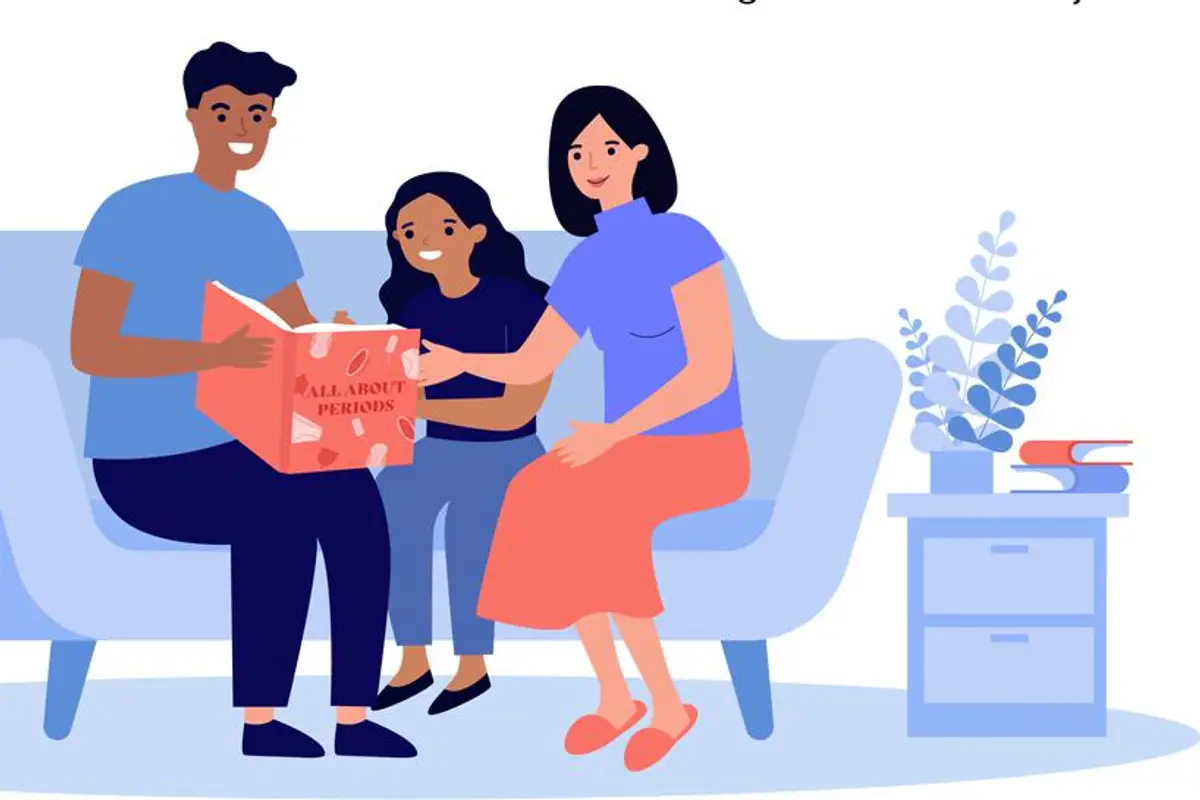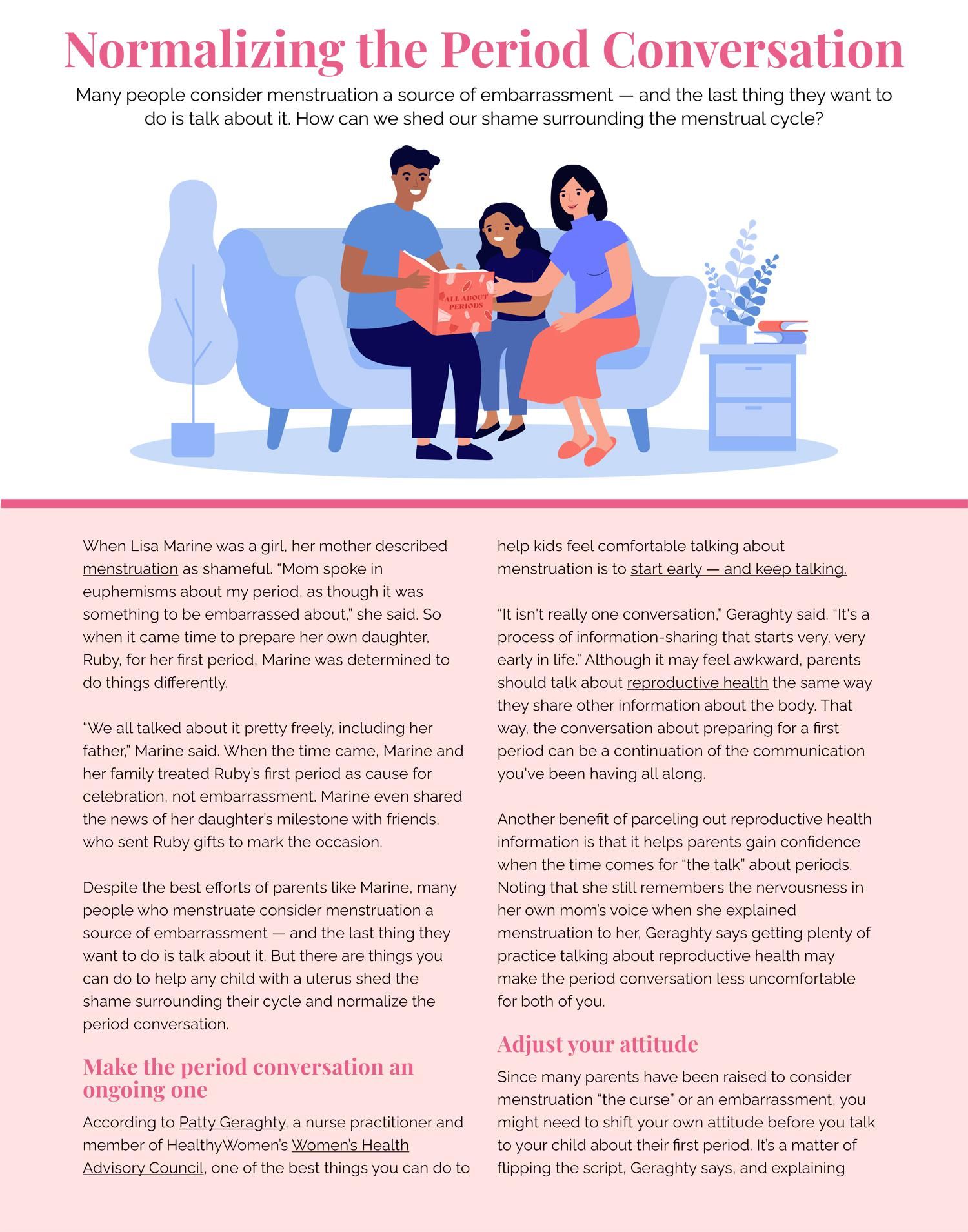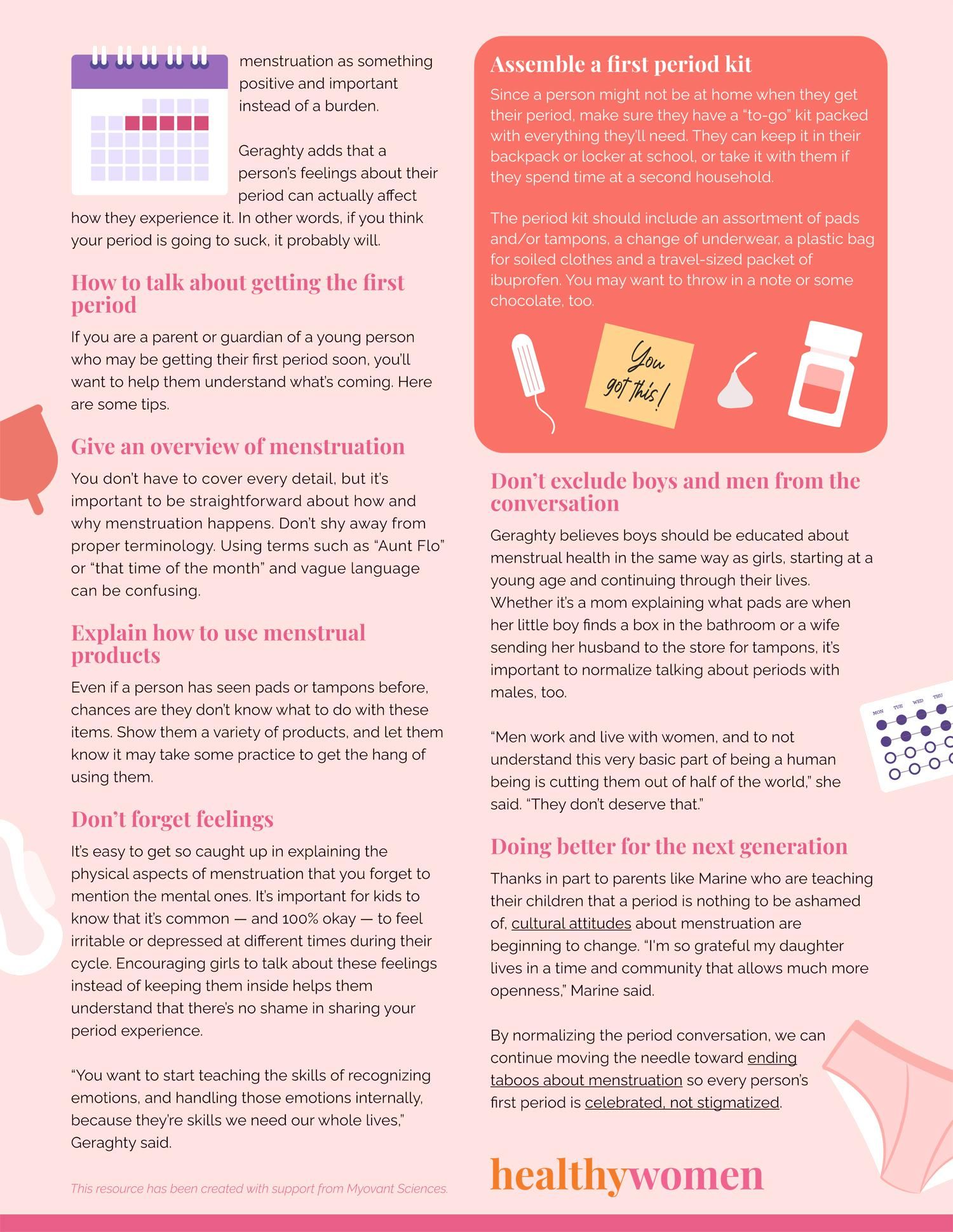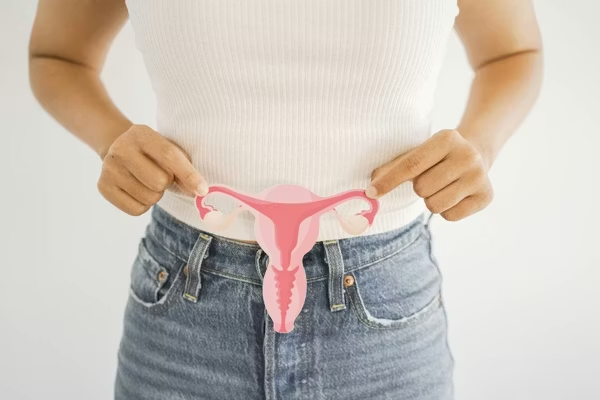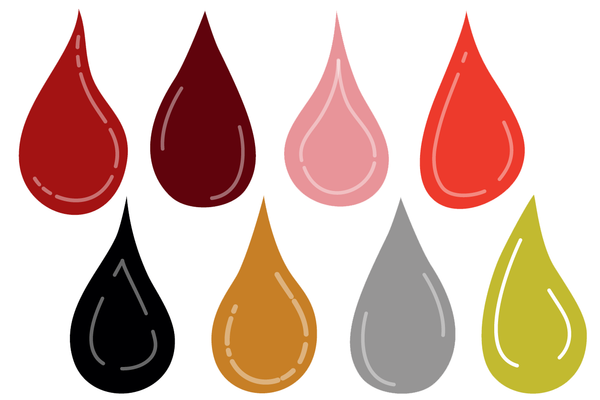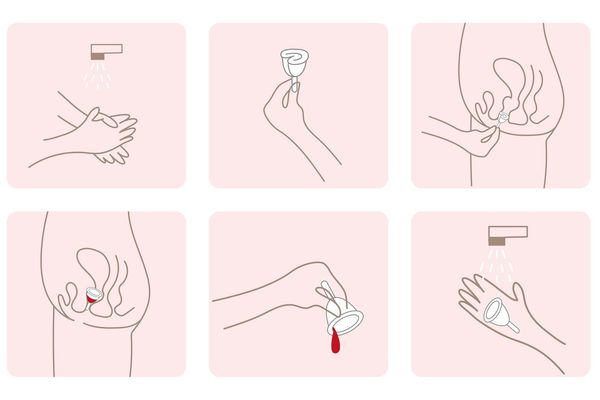When Lisa Marine was a girl, her mother described menstruation as shameful. “Mom spoke in euphemisms about my period, as though it was something to be embarrassed about,” she said. So when it came time to prepare her own daughter, Ruby, for her first period, Marine was determined to do things differently.
“We all talked about it pretty freely, including her father,” Marine said. When the time came, Marine and her family treated Ruby’s first period as cause for celebration, not embarrassment. Marine even shared the news of her daughter’s milestone with friends, who sent Ruby gifts to mark the occasion.
Despite the best efforts of parents like Marine, many people who menstruate consider menstruation a source of embarrassment — and the last thing they want to do is talk about it. But there are things you can do to help any child with a uterus shed the shame surrounding their cycle and normalize the period conversation.
Make the period conversation an ongoing one
According to Patty Geraghty, a nurse practitioner and member of HealthyWomen’s Women’s Health Advisory Council, one of the best things you can do to help kids feel comfortable talking about menstruation is to start early — and keep talking.
“It isn't really one conversation,” Geraghty said. “It's a process of information-sharing that starts very, very early in life.” Although it may feel awkward, parents should talk about reproductive health the same way they share other information about the body. That way, the conversation about preparing for a first period can be a continuation of the communication you've been having all along.
Another benefit of parceling out reproductive health information is that it helps parents gain confidence when the time comes for “the talk” about periods. Noting that she still remembers the nervousness in her own mom’s voice when she explained menstruation to her, Geraghty says getting plenty of practice talking about reproductive health may make the period conversation less uncomfortable for both of you.
Adjust your attitude
Since many parents have been raised to consider menstruation “the curse” or an embarrassment, you might need to shift your own attitude before you talk to your child about their first period. It’s a matter of flipping the script, Geraghty says, and explaining menstruation as something positive and important instead of a burden.
Geraghty adds that a person’s feelings about their period can actually affect how they experience it. In other words, if you think your period is going to suck, it probably will.
How to talk about getting the first period
If you are a parent or guardian of a young person who may be getting their first period soon, you’ll want to help them understand what’s coming. Here are some tips.
Give an overview of menstruation
You don’t have to cover every detail, but it’s important to be straightforward about how and why menstruation happens. Don’t shy away from proper terminology. Using terms such as “Aunt Flo” or “that time of the month” and vague language can be confusing.
Explain how to use menstrual products
Even if a person has seen pads or tampons before, chances are they don’t know what to do with these items. Show them a variety of products, and let them know it may take some practice to get the hang of using them.
Don’t forget feelings
It’s easy to get so caught up in explaining the physical aspects of menstruation that you forget to mention the mental ones. It’s important for kids to know that it’s common — and 100% okay — to feel irritable or depressed at different times during their cycle. Encouraging girls to talk about these feelings instead of keeping them inside helps them understand that there’s no shame in sharing your period experience.
“You want to start teaching the skills of recognizing emotions, and handling those emotions internally, because they’re skills we need our whole lives,” Geraghty said.
Assemble a first period kit
Since a person might not be at home when they get their period, make sure they have a “to-go” kit packed with everything they’ll need. They can keep it in their backpack or locker at school, or take it with them if they spend time at a second household.
The period kit should include an assortment of pads and/or tampons, a change of underwear, a plastic bag for soiled clothes and a travel-sized packet of ibuprofen. You may want to throw in a note or some chocolate, too.
Don’t exclude boys and men from the conversation
Geraghty believes boys should be educated about menstrual health in the same way as girls, starting at a young age and continuing through their lives. Whether it’s a mom explaining what pads are when her little boy finds a box in the bathroom or a wife sending her husband to the store for tampons, it’s important to normalize talking about periods with males, too.
“Men work and live with women, and to not understand this very basic part of being a human being is cutting them out of half of the world,” she said. “They don’t deserve that.”
Doing better for the next generation
Thanks in part to parents like Marine who are teaching their children that a period is nothing to be ashamed of, cultural attitudes about menstruation are beginning to change. “I'm so grateful my daughter lives in a time and community that allows much more openness,” Marine said.
By normalizing the period conversation, we can continue moving the needle toward ending taboos about menstruation so every person’s first period is celebrated, not stigmatized.
This resource has been created with support from Myovant Sciences.

